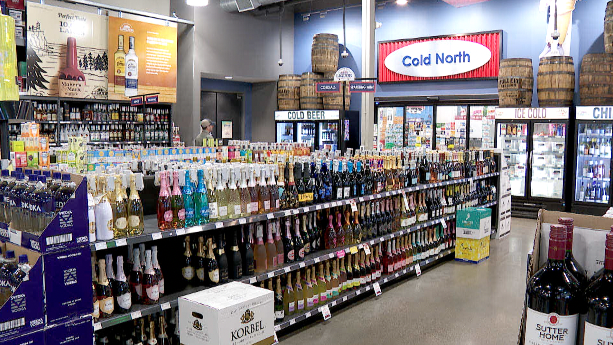Brooklyn Center’s Municipal Liquor Stores Report Operating Loss
In a world that’s inundated with big box liquor stores, there are still smaller operations like Brooklyn Center Liquor.
“We’re just one of over 200 cities in Minnesota that owns and operates a liquor store,” said Joe Cardoza, Brooklyn Center’s communications manager.
Brooklyn Center has owned and operated a municipal liquor store since 1949. All of the revenue generated from sales goes back to the city in the form of capital improvements and park maintenance.
“We want to encourage residents to keep coming out and support the stores so they can support the city,” Cardoza said.
Meanwhile, back on Dec. 13, the state auditor’s office released its 2022 report of municipal liquor stores. The report found that while overall sales were up statewide, net profits were down due to increased operating costs.
“Thirty-one Minnesota cities reported net losses for their municipal liquor operations in 2022,” said John Jernberg, a research analysis specialist with the auditor’s office. “That’s 18 more cities than in 2021.”
Brooklyn Center was one of those 31 cities, reporting an operating loss of $59,236. It’s the third year in a row the liquor operation reported a loss.
The city is now required by state law to hold a public hearing to ensure residents that the operation is being managed properly.
“We want to be as transparent as we can with the community,” Cardoza said.

Brooklyn Center moved its municipal liquor operation into this new building in 2020.
New building plays a role
The city built the new store from the ground up in 2020 at the Shingle Creek Crossing shopping center, but the store has to report the depreciation of the building as a loss to the auditor’s office. As a result, Cardoza calls the operating loss a technicality.
“Ultimately we ended up netting about $180,000 this year, and even though it shows that we had a loss in the audit, we still ended up coming out on top,” he said.
Bottom line: city officials say there’s no need to worry about liquor operations in Brooklyn Center.
“We are not at risk or in jeopardy of losing your favorite liquor store,” Cardoza said.
The city plans to hold a public hearing on its liquor stores at a yet-to-be-determined date.
Meanwhile, the city of Robbinsdale also reported a net loss in 2022 of $52,095. According to city officials, this was largely due to new accounting guidelines surrounding amortization and depreciation expenses, and fair value of investments. In addition, city officials say there were increased costs due to salaries for full and part-time employees.
Related: Brooklyn Center Municipal Liquor Store Losses Topped $51K in 2021


